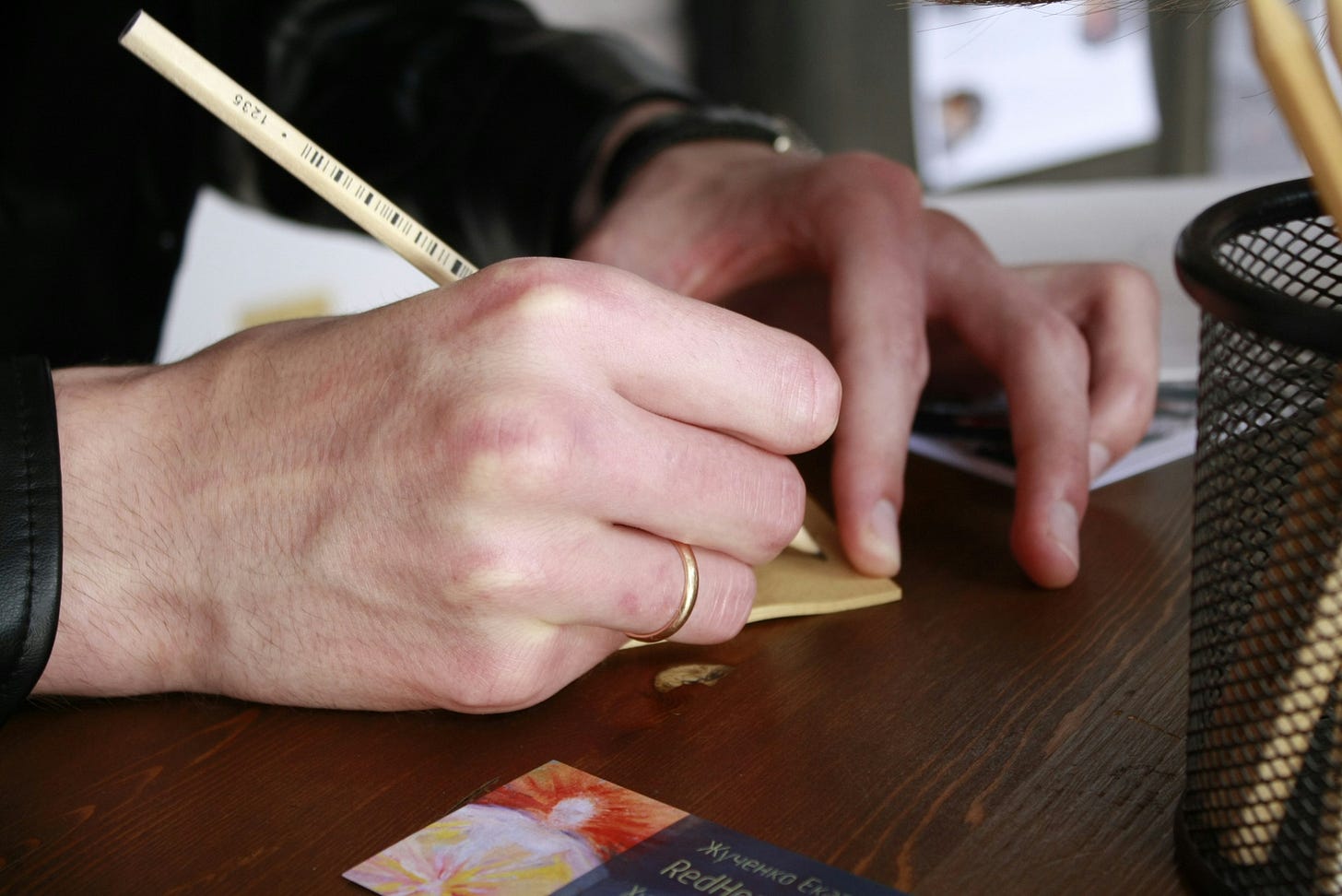The other day, I was in my mastermind group when a colleague—let’s call her Susan—shared a story that stopped us in our tracks. After 15 years, one of her former students, Max, had reached out. She hadn’t heard from him in all that time. He wrote to say how much her teaching had shaped his professional life.
Susan was floored. Despite her long track record as an extraordinary leader and consultant, she realized she hadn’t received many expressions of appreciation.
That story reminded me of one from my own life. About 15 years ago, I got a note from a young man I’d seen in therapy. At the time, he had dropped out of high school but told me he wanted to be a scientist. I said, “Then let’s work on that.” He had the fire. I could see it.
In his message, he told me he’s now a professor at a Big Ten university. He’s got a family. He’s doing the work he once only dreamed of. And he said our conversations were a turning point for him.
Sheila had to pick me up off the floor.
These stories stick with us. Not because they’re rare (though they are) but because they hit something more profound: the human need to be seen, affirmed, and appreciated
It’s easy to focus on what’s broken and what didn’t go right. That’s what our brains are wired to do. However, as psychologist Barbara Fredrickson has shown, positive emotions—gratitude, joy, pride, love—don’t just feel good. They do good. They open us up. They help us bounce back. And they shape how we experience challenges.
Fredrickson’s research once suggested a “tipping point”—about three positive emotions for every negative one. While the math behind that claim has been debated, the message remains: We need more good in the mix if we want to thrive.
So how do we get there?

Photo by Maryia Zmushko on Unsplash
Let’s make it real:
· Leaders: Write one short note weekly to someone on your team. No agenda. Just thanks or recognition.
· Colleagues: Say it out loud when someone helps you, teaches you, or has your back.
· Partners: Tell your spouse or loved one how often they show up—and how much that means.
· Friends: Send a quick “thinking of you” message, especially to the ones who always seem to be doing fine.
It’s not about being fake. It’s about being intentional.
And if you’re going through a career change or job search, this is even more critical. That process can chip away at your confidence. It can feel like a series of no’s and maybes. You need a network that reflects the yes to you—people who remind you of your strengths, values, and resilience.
That’s part of how I work with clients—helping them uncover what’s already strong, not just what needs fixing. It’s resilience in action: not avoiding the bad stuff but learning from it and turning it into fuel.
So, what’s next?
Get curious about the good. Create more of it, name it, and pass it on. Because sometimes the most significant changes start with the smallest acknowledgments
And who knows—maybe 15 years from now, someone will write you a note that picks you up off the floor.

Photo Nattakorn: Deposit Photos
P.S. What’s one message of appreciation you could send today?
Think about a colleague, a boss, a friend, or a partner. What can you do to let them know how they impact you right now?
And if you’re at a turning point—personally or professionally—and could use support seeing your strengths more clearly, let’s connect. Whether through consulting, coaching, or therapy, this is the work I do: helping people move forward with purpose, resilience, and a clearer sense of What’s Next
I’d love to hear where you are and where you want to go. Just message me below.
